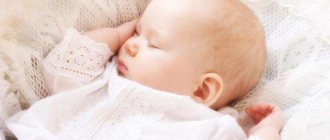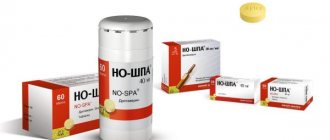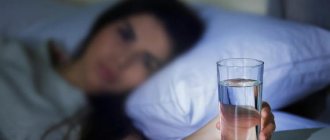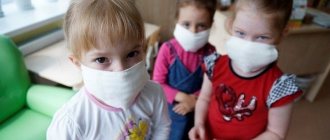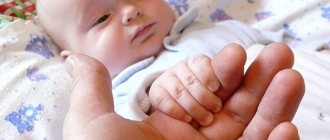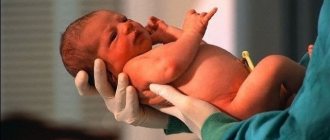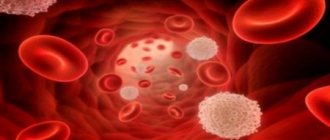Why does my child sweat a lot in his sleep, even though I turn on the air conditioner every night? This is fine? Should I be concerned?
So, why does a child sweat while sleeping? The good news is that in most cases, a wet spot behind your baby's head that you often find while he's fast asleep is really nothing to worry about. Night sweats or sleep hyperhidrosis in children are mostly harmless. But sometimes it can be linked to an underlying health condition.
What are night sweats? Night sweats refer to excessive sweating in babies and children, especially when they are sleeping.
Why is this happening? Babies spend a lot of time in a deep sleep cycle. So your baby sweats during sleep simply because of this deep cycle. During deep sleep, they don't move much and this leads to a lot of sweat!
When is it a cause for concern?
Most of the time, your baby will sweat while sleeping; this is normal and nothing to worry about. But here are some reasons why excessive sweating may be a sign:
- Congenital heart problem
In addition to your baby sweating while sleeping, if you notice that she is sweating a lot during simple activities such as feeding, it may be time to make an appointment with your pediatrician as this is a symptom of a congenital heart problem.
A congenital heart problem is the result of abnormal heart development in the fetus. Children with this condition end up sweating much more than other children because their hearts have to work much harder to pump blood effectively.
- Hyperhidrosis
If you notice that even in a cold, air-conditioned room, your baby is still sweating a lot, this may be caused by a condition known as hyperhidrosis.
Hyperhidrosis is when a child sweats beyond what the body requires to maintain normal body temperature. People with sweaty palms and feet experience this condition.
It's not that you particularly need to medicate your child. There's nothing serious about it, despite how it sounds.
Rather, as your child gets older, you can teach him how to manage sweating, such as using antiperspirants.
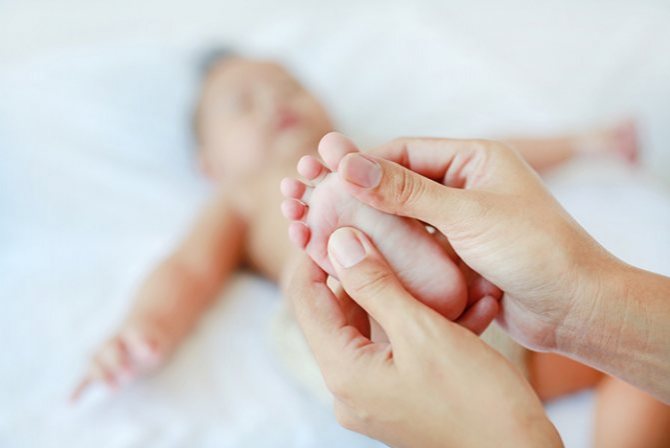
- Other reasons
While we say that baby sweating while sleeping is common and not a cause for concern if the sweating is excessive (eg, why does baby sweat a lot during feeding?), we should never ignore the issue.
It may also signal problems with the nervous system, respiratory problems, an overactive thyroid gland, or a genetic disorder.
If you are in doubt, it is best to err on the side of caution and have your child tested.
But just to reassure you moms and dads, the conditions listed are extremely rare, so please don't worry the next time you notice your baby sweating while sleeping!
Warning Signs: Pay Attention to These
We have already emphasized that sweating should not cause your alarm if the discharge is colorless and odorless, if there are no other additional manifestations. Unfortunately, sometimes sweat can be a sign that your baby is having problems. Let's look at the most common options:
- Rickets. Yes, a lack of vitamin D can lead to this disease. Any mother, even without special medical education, can identify it if she notices that her sweaty little head clearly smells of something sour;
Another symptom is if not only the child’s head, but also the child’s face begins to sweat heavily, and if the baby’s sleep becomes restless. Sometimes rickets can be accompanied by digestive problems or loss of appetite.
- Neurological problems. This is often indicated by the fact that not only the head can sweat, but also the back, neck, and one palm. Pay attention to what kind of sweat - has it suddenly taken on a tint or become viscous? If this is the case, there is cause for concern, seek help;
- Hereditary diseases. Unfortunately, there are diseases that are inherited, in which the baby can also sweat a lot. These include cystic fibrosis and phenylketonuria.
Sometimes mothers of grown-up children wonder why a 3-year-old child sweats in his sleep. It would seem that the “newborn” problems are left behind, and during this time the baby’s body, to some extent, is already working smoothly and clearly. A three-year-old child may sweat profusely during sleep due to what is called lymphatic diathesis.
Under this frightening name lies a not so terrible phenomenon, which often appears due to the fact that individual organs seem to have not fully “ripened”.
If you follow simple rules of care, your child will quickly forget about this unpleasant period in his life. Daily baths, limiting sweets in food, replacing completely unhealthy juices with natural fruits and vegetables are perhaps the very first things that will help cope with diathesis.
How to help your child deal with night sweats
The following steps can help your child feel better
- Keep the room temperature . You can turn on a fan or leave the windows open.
- The child's head sweats during sleep: a cold shower before bed may help.
- Drinking cold water can keep the body hydrated and can help maintain body temperature.
- If your child sweats a lot during sleep, avoiding spicy foods before bed may help maintain body temperature.
- If your child's head sweats during sleep, apply a damp cloth to the child's forehead at night.
- You can replace heavy sheets and blankets with lighter ones.
If your child does not feel well or continues to sweat, contact your doctor.
Tips for parents
If a sleeping child's head sweats, he feels uncomfortable and fidgets a lot, you should not look for the cause on your own. Only a specialist will quickly and accurately identify it and, if necessary, prescribe treatment.
In cases where doctors have not found anything dangerous, you can listen to the recommendations of experienced mothers who will help make the baby’s life more comfortable:
- Make sure that the temperature in the room where the baby sleeps is optimal. If using a heater is necessary, choose models that do not dry out the air. Ventilate the room and do at least three wet wipes of furniture and floors per day.
- Often the baby's head sweats due to too warm clothes. Older children may open up in their sleep: this signals that the baby is hot. Choose clothes based on temperature conditions and do not wrap your child too warmly while sleeping.
- It is advisable to bathe your baby every day. It is worth using soap less often. It is better to add decoctions of medicinal herbs (several times a month you can use oak bark, chamomile, string, and less often sea salt).
- Food should not be salty or spicy. Sweets also cannot be given without restrictions. It will be useful to introduce vegetables and fruits into the diet according to age.
- A set of therapeutic exercises and massage will help improve your body’s health and boost your immunity.
Don't be alarmed if your child wakes up sweaty. The best way is to carefully monitor your child so as not to miss any other symptoms if they appear. Remember, timely consultation with a pediatrician will help avoid the development of dangerous diseases.
Parental tactics for excessive head sweating in infants
In this case, the main methods of combating head sweating in infants are a comfortable temperature regime and microclimate in the room - frequent ventilation of the room with regular wet cleaning.
It is necessary to take a closer look at the bed linen in the crib and replace it with linen made from natural fabrics - cotton, linen, without artificial threads. You also need to choose the right clothes for your baby so that excess sweat is absorbed and does not remain on the baby’s scalp, creating and aggravating the “greenhouse effect.”
The baby's head is sweating a lot
Severe sweating of the head of an infant can develop in the presence of somatic pathology - colds or viral diseases (in the incubation or initial prodromal period, even in the absence of the first clinical symptoms of the disease - runny nose, cough, fever). In this case, sweating of the head may be accompanied by lethargy, refusal to eat, anxiety, and regurgitation.
Also, these symptoms can manifest themselves with the progression of intrauterine infections (chlamydia, toxoplasmosis, cytomegalovirus infection).
In case of blood diseases of various etiologies (anemia), endocrinopathies, liver and kidney diseases, the first signs may also be lethargy, increased sweating of the scalp, and anxiety.
Therefore, if any negative symptoms or changes in the behavior of young children appear, you should seek advice from your local doctor.
Where do the crusts on a baby's head come from?
Doctors call this condition seborrheic dermatitis.
and they blame maternal hormones for its occurrence, which cause increased secretion of the sebaceous glands in the baby’s body. As a result, a dry crust of gray or yellowish color forms on its head, tightly adjacent to the skin and often pressing individual hairs against it. Another common cause of crusts is an allergic reaction.
And finally, a crust on a baby’s head can be the result of parents’ excessive passion for hygiene procedures and excessively frequent use of shampoo (especially for adults). As a result, the protective layer is washed off from the skin, it becomes sensitive and becomes susceptible to diseases.
Causes of a hot head in a baby without fever
The birth of a child opens up a new world for young parents - the natural processes that occur in adulthood bear little resemblance to the reaction of a baby’s body. Everyone is used to it - a hot forehead symbolizes an increase in temperature, the onset of a disease. Breasts are designed differently.
A hot forehead with normal body temperature is a sign of a poorly formed thermoregulation system between the baby and the outside world, which is the absolute norm. But it happens that this signals serious illnesses.
The main causes of a hot head
A baby’s hot head is a natural dependence on the ambient temperature; the body is small to optimally adapt to the outside world, so the most common cause is simple overheating.
Young mothers love to wrap their babies up, but for a baby, overheating is more dangerous than cold. Why is this happening? It's all about unformed thermoregulation, which is more adapted to coolness.
The sweat glands of newborns have not yet formed; they produce a minimal amount of moisture to cool the body. Therefore, blood vessels act as a temperature regulator; they expand, thereby cooling the baby’s body and protecting against overheating. But it may seem that the child is burning, since the vessels are located close to the surface of the skin.
The most important thermogenic function is possessed by brown fat, of which a sufficient amount is found under the skin of a newborn; brown fat, when oxidized, produces the heat necessary for normal body temperature.
The source of heat is overheating as a result of external factors, for example, numerous clothes, for this reason the body begins to cool through the head, the only open place.
If, in addition to a hot forehead, there is strong salivation, ma
Sweating of the head in an infant with rickets
Today, quite often the cause of increased sweating of the head in young children is the development of rickets. Vitamin D deficiency occurs when there is insufficient intake of it into the baby’s body during pregnancy and its absence in sufficient quantities in the depot. This can occur in premature babies, children of twins, with pathologies of pregnancy (severe toxicosis, severe somatic diseases in the mother, disorders of the fetoplacental circulation). And also in case of impaired absorption of vitamins and microelements in infants (enzymopathies, inflammatory diseases of the gastrointestinal tract, dysbacteriosis), with reduced insolation (winter season). But it is dangerous to use vitamin D preparations on your own - a pediatrician, if necessary, will prescribe a medicine, dose and frequency of administration (daily or every other day) for the prevention or treatment of the initial stages of rickets.
Baby has a hot head photo
Read other articles about children, their life, upbringing, and development.
If you liked the article - The baby has a hot head, then you can leave a review or talk about it on social networks.
And also see other articles written especially for you:
Smile with your child!
